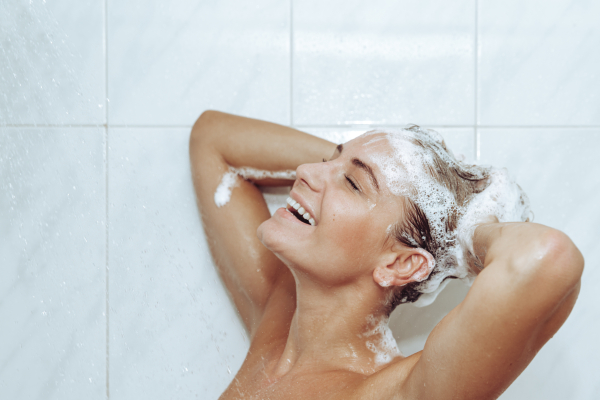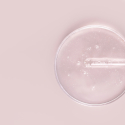- Europa
-
- Amstetten(7)
- Bad Schallerbach(1)
- Baden(4)
- Berg(1)
- Braunau am Inn(5)
- Bregenz(3)
- Bruck an der Mur(1)
- Graz(4)
- Hartberg(1)
- Innsbruck(5)
- Kemmelbach(1)
- Kitzbühel(4)
- Klagenfurt(5)
- Krems an der Donau(1)
- Kufstein(5)
- Leibnitz(1)
- Lienz(1)
- Liezen(1)
- Linz(5)
- Oetz(1)
- Punitz(1)
- Radstadt(1)
- Salzburg(5)
- St Polten(2)
- Steiermark(1)
- Steyr(1)
- Steyregg (1)
- Traun(3)
- Vienna(26)
- Villach(5)
- Völkermarkt(1)
- Wels(5)
- Wien(1)
- Wiener Neustadt(4)
-
- Aalst(1)
- Aarschot(2)
- Affligem(1)
- Anderlecht(5)
- Antwerp(11)
- Antwerpen(1)
- Arlon(6)
- Ath(2)
- Aubange(5)
- Bastogne (2)
- Blankenberge (1)
- Bruges(5)
- Brussels(15)
- Charleroi(5)
- Deinze(3)
- Dendermonde(1)
- Diest(2)
- Etterbeek(5)
- Geel(1)
- Genk(5)
- Gent(6)
- Geraardsbergen(1)
- Grimbergen (2)
- Hasselt(5)
- Heusden- Zolder(2)
- Ieper(1)
- Izegem(1)
- Knokke(4)
- Kortrijk(2)
- La Louviere(2)
- Leuven(5)
- Liege(4)
- Limburg(4)
- Lommel(1)
- Mortsel(1)
- Oostende(1)
- Turnhout(1)
-
- Chelyabinsk(1)
- Dubna(4)
- Gelendzhik(1)
- Irkutsk(1)
- Kaliningrad(1)
- Kazan(4)
- Krasnodar(3)
- Krasnoyarsk(1)
- Maykop(1)
- Moscow(50)
- Nizhny Novgorod(4)
- Novosibirsk(1)
- Omsk(1)
- Penza(1)
- Rostov-on-Don(2)
- Saint Petersburg(13)
- Samara(1)
- Saratov(1)
- Serpukhov (2)
- Sevastopol(3)
- Sochi(5)
- Stavropol(1)
- Surgut(1)
- Tyumen(2)
- Ufa(2)
- Vladivostok(3)
- Yekaterinburg (11)
-
- Alicante(8)
- Barcelona(113)
- Benalmadena(1)
- Benidorm(7)
- Castellón de la Plana(1)
- Denia(1)
- Estepona(1)
- Fuengirola (3)
- Ibiza(49)
- Jerez de la Frontera(1)
- Lanzarote(1)
- Las Palmas de Gran Canaria(5)
- Madrid(57)
- Malaga(9)
- Marbella(48)
- Murcia(1)
- Oviedo(1)
- Palma de Mallorca(48)
- Puerto Banus(3)
- Seville(1)
- Tarragona(1)
- Tenerife(7)
- Torrevieja(3)
- Valencia(9)
- Vigo(1)
- Zaragoza(1)
- Worldwide
The Truth About Washing Your Hair Every Day: What You Need to Know
 The routine of daily hair washing with shampoo is a common practice, but is it truly beneficial for everyone? This guide delves into the impact of washing hair daily and provides insights for men, women, and teenagers on maintaining healthy hair.
The routine of daily hair washing with shampoo is a common practice, but is it truly beneficial for everyone? This guide delves into the impact of washing hair daily and provides insights for men, women, and teenagers on maintaining healthy hair.The Effects of Daily Shampooing
1. Understanding Hair Health
Hair, like skin, has its own natural oils that keep it hydrated and protected. Frequent washing can strip these essential oils, potentially leading to dryness and irritation. The frequency of washing should ideally match the individual's hair type and scalp condition.
2. The Impact on Different Hair Types
For Oily Hair: Daily washing might be necessary for those with excessively oily hair, as it helps to manage sebum buildup and keep the scalp fresh. However, using a gentle shampoo can prevent over-drying.
For Dry or Curly Hair: Individuals with dry or curly hair often require less frequent washing. Overwashing can exacerbate dryness and frizz. Using a moisturizing shampoo and conditioner can help maintain the hair’s natural moisture balance.
Is Daily Shampooing Necessary?
1. Individual Factors to Consider
Everyone’s hair and scalp are unique. Factors such as hair type, lifestyle, and environmental conditions play a role in determining how often you should wash your hair. For some, daily shampooing might be a necessity, while for others, it could be excessive.
2. Alternatives to Daily Washing
If you find daily washing to be too harsh, consider using dry shampoo on non-washing days. This product helps absorb excess oil and refreshes the hair without the need for water. Additionally, using a sulfate-free shampoo can be gentler on your hair and scalp.
Tips for Proper Hair Care
1. Choosing the Right Shampoo
Opt for shampoos that match your hair type and scalp condition. Look for products that are free from harsh chemicals and sulfates, which can be drying. Ingredients like glycerin and natural oils can offer additional hydration.
2. Proper Washing Techniques
When washing your hair, use lukewarm water instead of hot water, as hot water can strip away natural oils. Gently massage the shampoo into the scalp to stimulate blood flow and ensure a thorough clean. Rinse thoroughly to avoid product buildup.
3. Conditioning and Moisturizing
Incorporate a conditioner suitable for your hair type to maintain moisture. Apply conditioner primarily to the ends of your hair to avoid weighing down the roots. Regular use of leave-in conditioners or hair masks can also provide added nourishment.
Guidance for Teenagers
Teenagers, who often experience hormonal changes, may have different hair care needs. Frequent washing might be necessary for those with oily scalps, but it's important to use products that are gentle and appropriate for their age. Teaching proper hair care habits early on can set the foundation for healthy hair.









